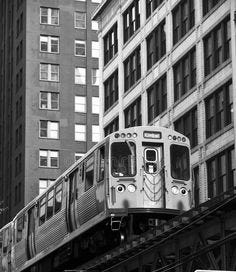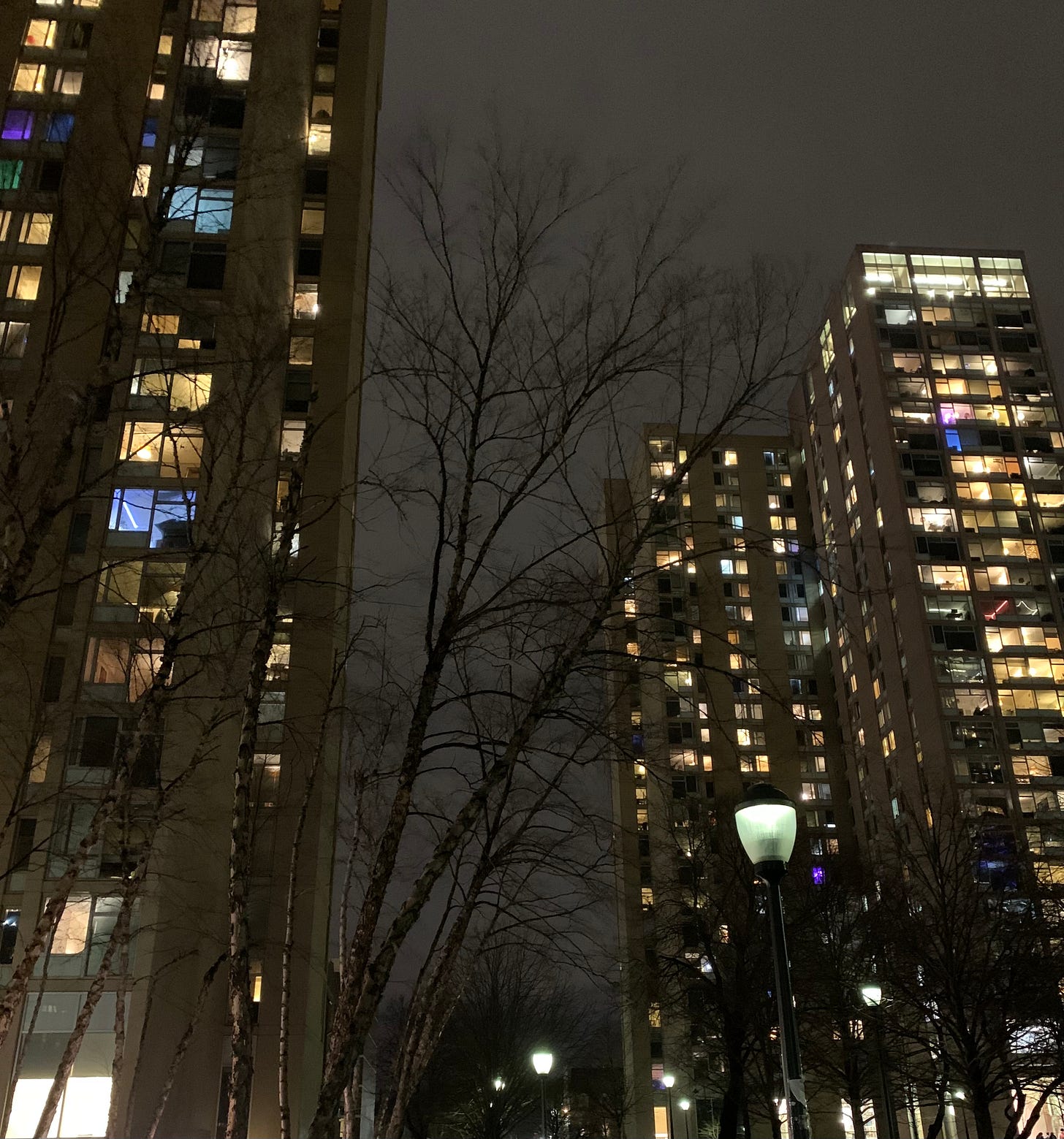“Unreal City.”
I wonder what T.S. Eliot would think of Chicago.
Songs that make me feel like a three-year-old watching leaves fall in a stroller in Brooklyn again: “Kick Drum Heart” by the Avett Brothers, “Step” by Vampire Weekend, “Wrapped Up in Books” by Belle and Sebastian, “1234” by Feist, “Chicago” by Sufjan Stevens, “I Am Trying to Break Your Heart” by Wilco. Another innocent child left at the mercy of hipster-twee parents. Sad.
I don’t particularly associate these songs with the city I grew up in. I’m not sure why. I associate them with the farmer’s market, with to-go bags of Cheerios, with Locust Walk on UPenn’s campus — but in my mind, they don’t necessarily look like Philadelphia. What they conjure up for me is broader, farther-reaching; less about nostalgia and more about imagery, about gray skylines and car rides, about dirty concrete. They look like Providence and Portsmouth and Portland, places we drove to once or twice a year, places I’ve always felt like a long-lost former resident of despite never having lingered in them for more than two weeks. They look like New York, of course, where my aunt and uncle were and where everything felt exciting even though the trees in Prospect Park were the same as the ones at Clark Park down the street. And they look like Chicago, a place I’ve never been.
Jeff Tweedy and Sufjan Stevens possess a great many talents that I evidently do not, but the one I’m most jealous of is the ability to put a city into words. I’ve never considered myself a “creative,” really — I’ve never been able to draw forth a distinct feeling with a brush or guitar the way that good art so surprisingly manages to do. So I’m left with only words, and words are usually enough. I manage. But G-d, I’ve tried so many times to write about why I love cities in a way that feels appropriately reverent and weighty, in a way that feels wide, in a way that doesn’t turn out horribly cliché or genuinely incomprehensible. And I just haven’t been able to do it. This, for me, is where words never quite suffice.
I have bits and pieces. I have a picture I took walking around once at night, one of my favorite pictures I’ve ever taken, of a cluster of LED-spattered college dorms jutting into the dark sky that always make me feel so particularly light and small. Unreal City. I have alleys where I sit and watch my friends get drunk and kiss each other. I have buses that I take home the morning after in the dreamlike dawn, bleary-eyed and strangely inclined to fits of emotion at the glimpse of suited throngs crossing the street or the slight touch of a stranger’s hand on the metal railing. I have steaming summers and blistering winters when everything goes static and raw, goes still, when the harsh impersonality of a million beige buildings scrapes my insides and care between neighbors seems lost in the wind. Unreal. I have the nights when the city picks me back up again, when blinking lights make constellations on the surface of the river and rain dampens the sidewalk outside the trolley window and kids pop fire hydrants open to dance in the spray.
How could you see only cold, only brutality? Men built this town for me.
I’m listening to Wilco now, looking out the car window and superimposing some vague idea of the Chicago skyline overtop the emerald hills and cornflower-blue mountains of northern Vermont. I am a silly girl, prone to romantics, prone to loving in anticipation, so in my mind I love Chicago with the wry, knowing affection of someone who’s been there a thousand times. I’ve been here a thousand times, too, in real life — this starkly stunning New England wilderness that my parents always adored, these haughty trees and self-satisfied vistas, these lakes, these peaks. Here, the soundtrack is songs like “California Stars” and “Sweet Baby James,” songs that I don’t listen to anymore; they’re the wrong kind of nostalgia. The kind that makes me want to cry, for reasons far too deeply buried to understand.
I’ve never felt lonelier than when I’ve stood in great fields up here miles away from anything else, these hallowed “wide open spaces” where the sky doesn’t end and the stars shine distant and brilliant. Maybe — probably — I’m not mature enough to process that kind of acute aloneness, to fall asleep at night with only the chirping of crickets to mask my thoughts, missing sirens and fireworks, missing reminders that I’m not the only thing that thinks and needs and hurts, that I’m one of many, that I’m small. If it’s immaturity, it’s craven and needy — I want to be comforted by a million bodies writhing, fighting, moving around me. I want to risk being blinded and terrified and forgotten just to know that they’re there. But that lack of intimacy feels so profoundly intimate — that so many feet have tread on the downtown concrete, that amongst all of the material and electricity and structure, there is so much that is alive.
“Impossible Germany” reaches its kinetic, flailing climax at max volume in my earbuds. I’m an urban fetishist, I’ve decided. Or perhaps just a hopeless romantic. I’ve told my family and friends that I don’t think I could ever live anywhere smaller than the city I’ve grown up in, which is typically met with the appropriate incredulity; my qualification rules out the majority of the Earth. But I don’t see how I could give it up. I am spoiled and I am ravenous. I assassin down the avenue. I wish Kafka and Eliot and a hundred other Modernists and all of the faux-trads and “back to nature” romantics could see the crowds and towers the way I do. There is nothing natural amongst these streets, but there is everything human, everything real. And it pulses. And it glitters. And it breathes.
Can’t you feel it?




